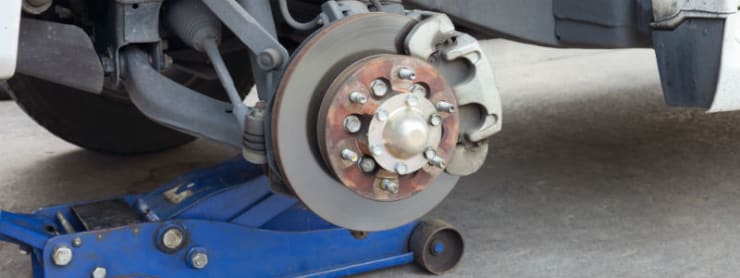
Getting new brakes fitted to your car can be costly, but many drivers don’t realise that the way that they are driving could be affecting the shelf-life of their brakes.
If you make a few small, conscious changes to your driving style then you could find that your brakes last much longer and that you can drive for many more miles without needing a new set.
6 tips for driving and saving your brakes
Listed below are 6 easy tips which don’t require much time or money to do, but could end up saving you a fortune in terms of the amount you spend on getting your brakes replaced. If you are more considerate of your brakes each time you drive and bear these small things in mind whenever you get in the car, then you could dramatically reduce the number of times that your brakes need to be replaced.
1. Coasting
The harder you break, the more pressure and wear it puts on your brake pads. If you regularly decelerate quickly from high speeds then you could be putting a lot of unnecessary strain on your brakes. If you are driving on the motorway, try to indicate early and coast for a while to reduce your speed before you have to brake.
2. Look ahead of you
It sounds extremely obvious but you would be amazed at how many drivers aren’t fully aware of what is ahead of them. Make sure that you look well into the distance and anticipate any braking you will have to do well before you get to the hazard or junction.
This way, you will give yourself plenty more time to take your foot off the accelerator, coast for a while to let your speed drop, and then only brake when you really have to.
3. Unload the car
We are all guilty of leaving things in the car even though we don’t need them because we just can’t be bothered to unload them at the other end or find a permanent place for them to live. However, the heavier the car is, the more strain it puts on your brake pads. Regularly driving around with far more weight in the car than is necessary could dramatically reduce the lifespan of your brake pads. Simply by taking those unnecessary items out of the boot and finding them a permanent home could make a real difference. It may be a minor inconvenience to move them but it will pay off in the long run.
4. Don’t follow other people’s example
Just because other people drive in a way which is damaging to their brake pads doesn’t mean that you have to put yours through the same thing. More often than not, even if the person in front of you does not anticipate having to slow down well in advance, you will still have the opportunity to see well in front of you to be able to slow down gently. Don’t let other people’s habits be an excuse and don’t let them affect the amount of times you have to change your brakes.
5. Think about regular journeys you make
We can all become complacent when we make a journey several times a week. If you drive to and from work then you can often be in a hurry to get home from the office and this can affect the way you drive. Rapidly accelerating and decelerating is unlikely to save you much time on your journey and could really put a strain on your brakes. If you know the route well then you will know where the obstacles such as traffic lights or roundabouts are before you reach them and will be able to slow down in a gentler manner if you think about what you are doing before you get there. For regular journeys, making these small changes could really improve the lifespan of your brakes and save you from having to change them quite as often.
6. Get your brakes serviced
Having regular ‘check-ups’ on your brakes will give you the chance to have small things fixed before they turn into bigger problems. This could mean that your brakes last much longer, and spending a small amount of money now could save you from having to shell out to replace your brakes entirely in the foreseeable future.

None of these steps are particularly difficult or costly to put into practice and although they may seem a little inconvenient at first, they will soon seem perfectly natural. With a little persistence you could change your driving habits for good and really reduce the number of times that you have to have your brakes fixed or replaced.
All about the Brakes
- Brakes repair and replacement
- How to paint brake calipers
- How to make your brakes last longer
- How to change brake discs
- Where to Get Cheap Car Batteries
- Why a service of brake fluid and hydraulics is so important
- How to change brake fluid
- What are backing plates?
- How to diagnose your brake problems
- How to change brake pads
- How to use a Brake Bleeding Kit
- What is a Brake Bleeding Kit






